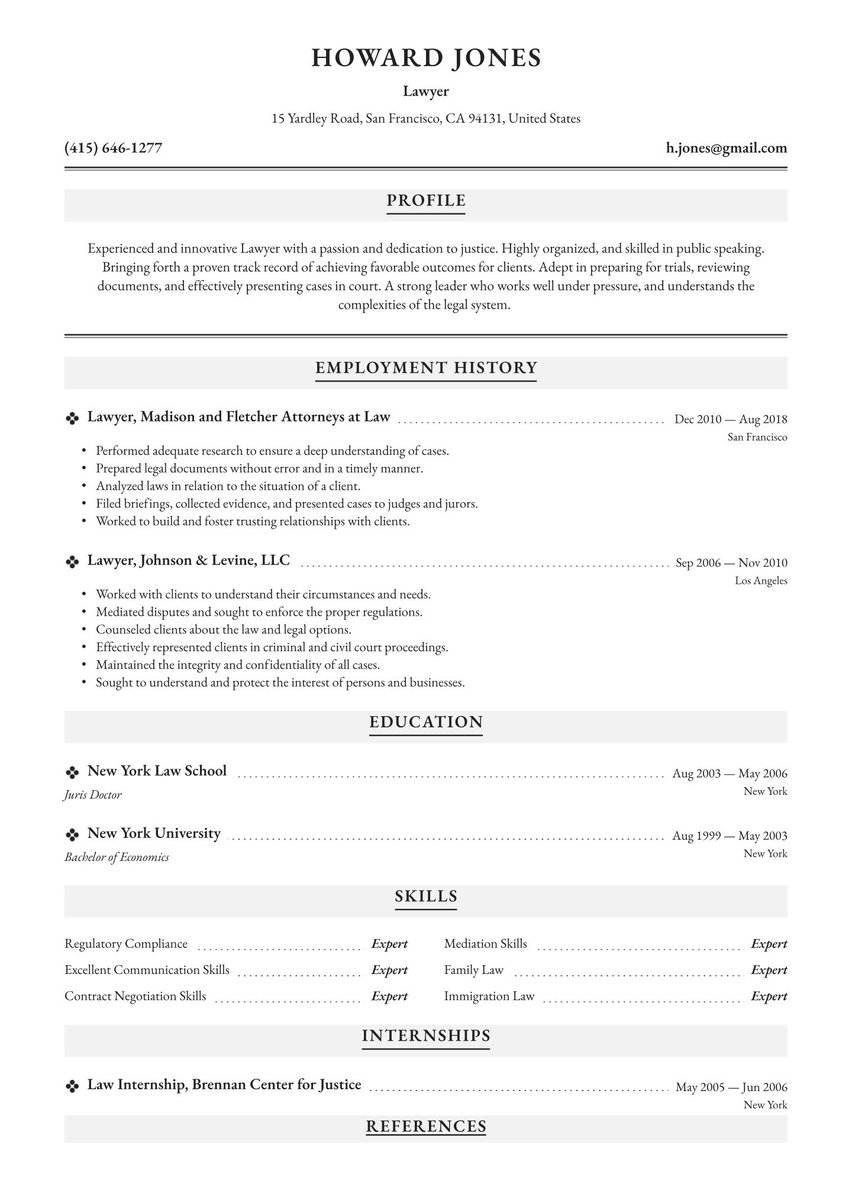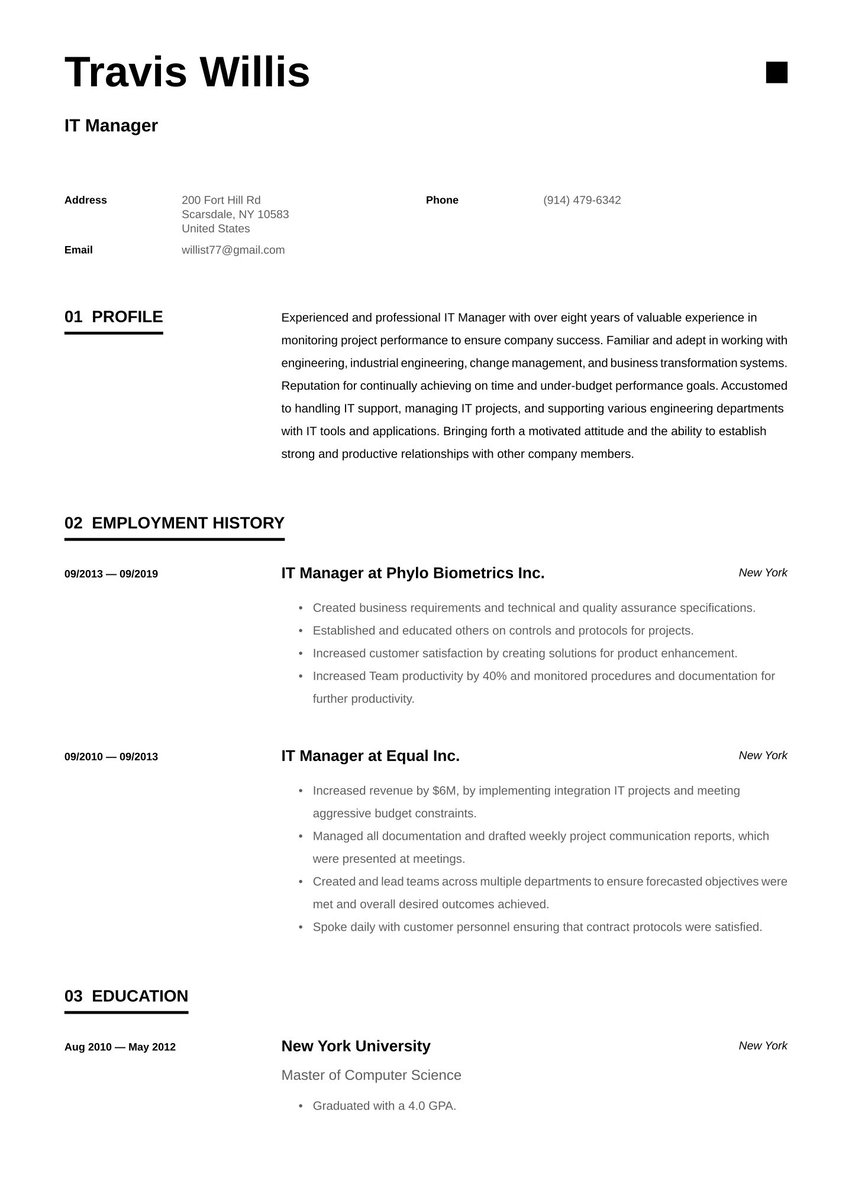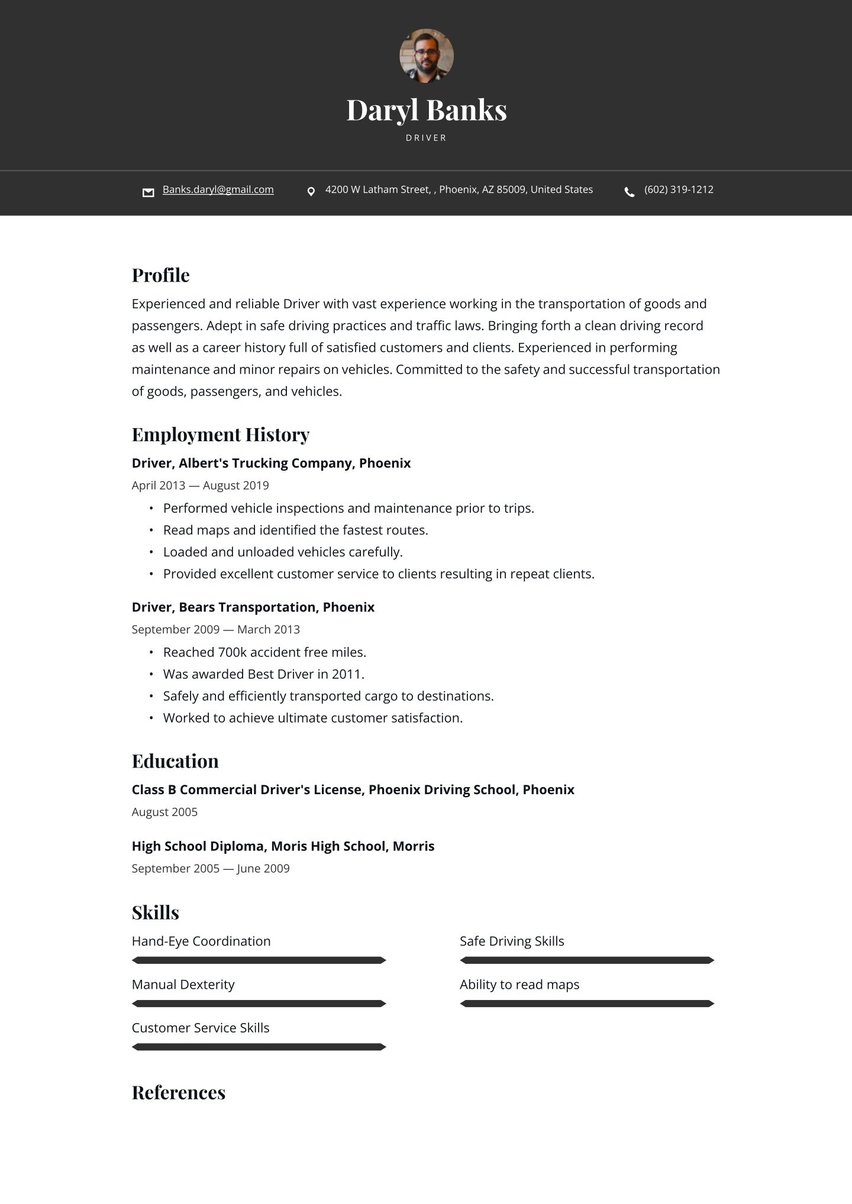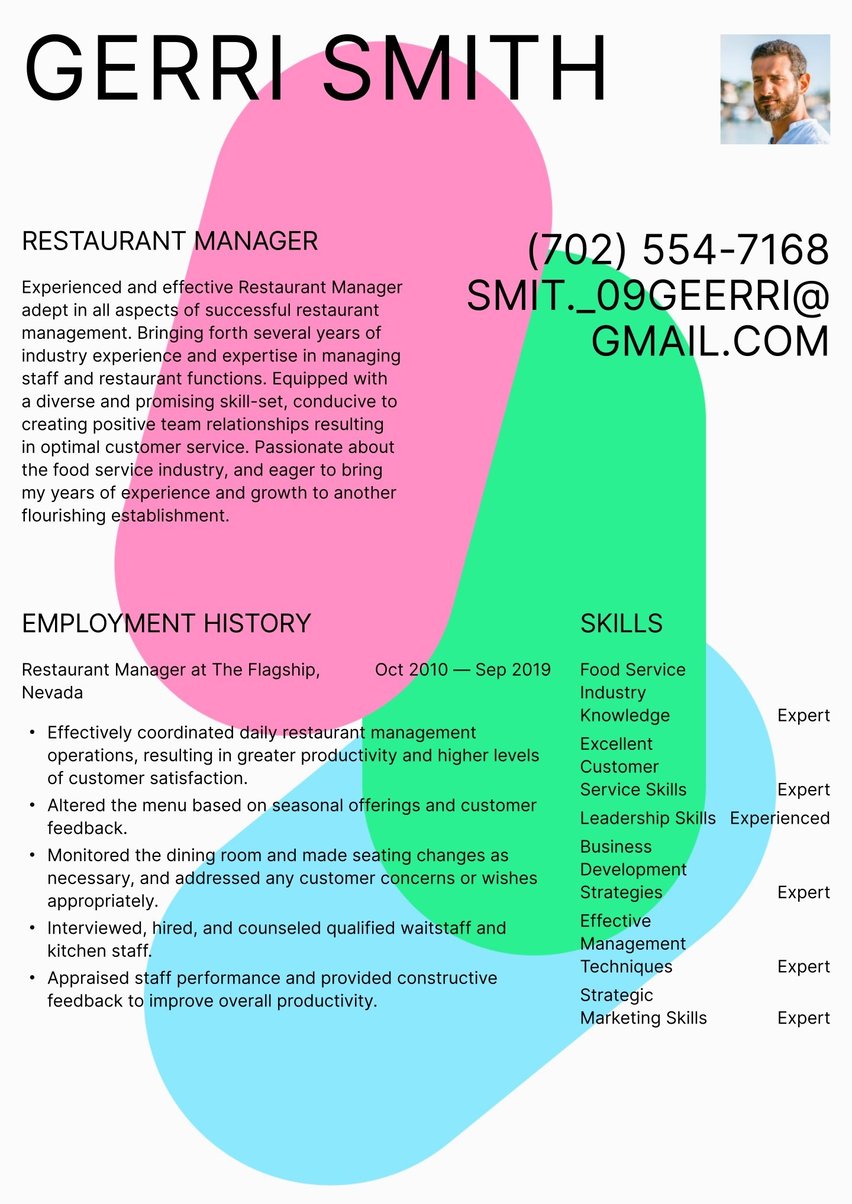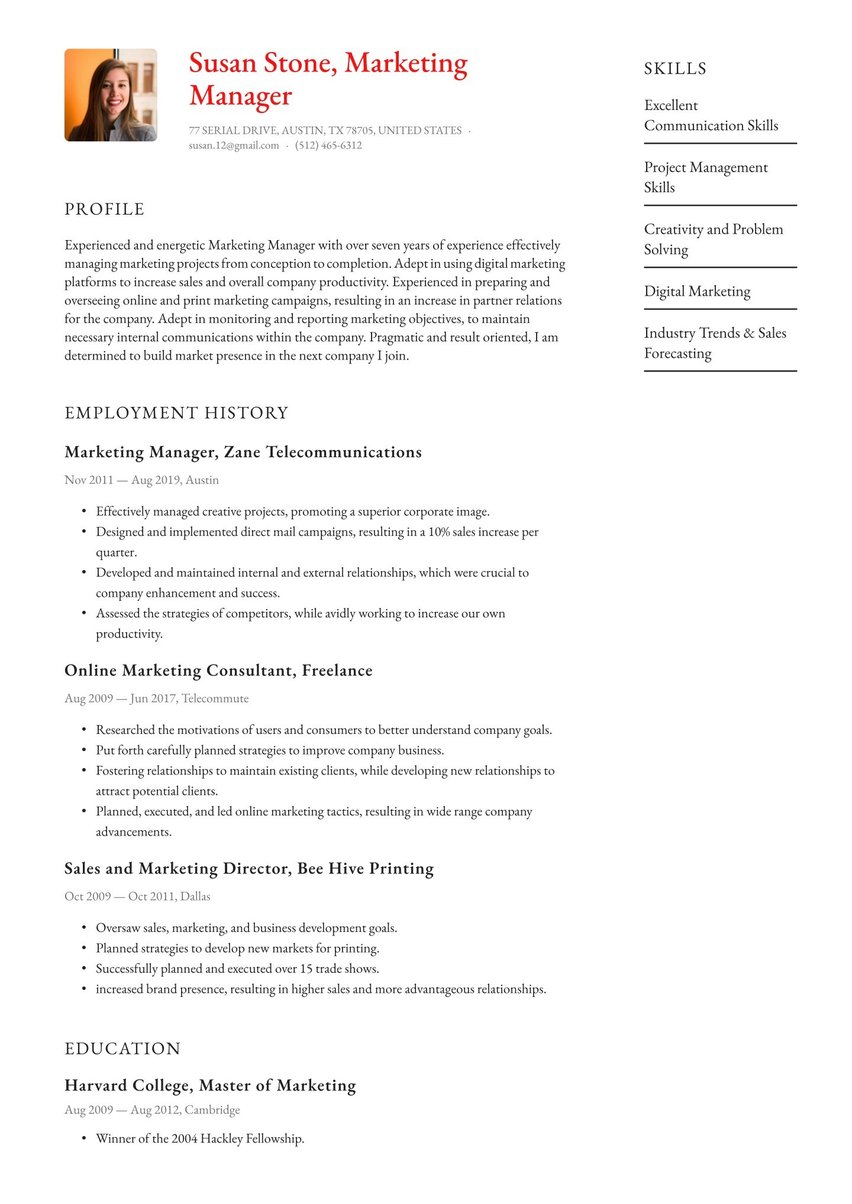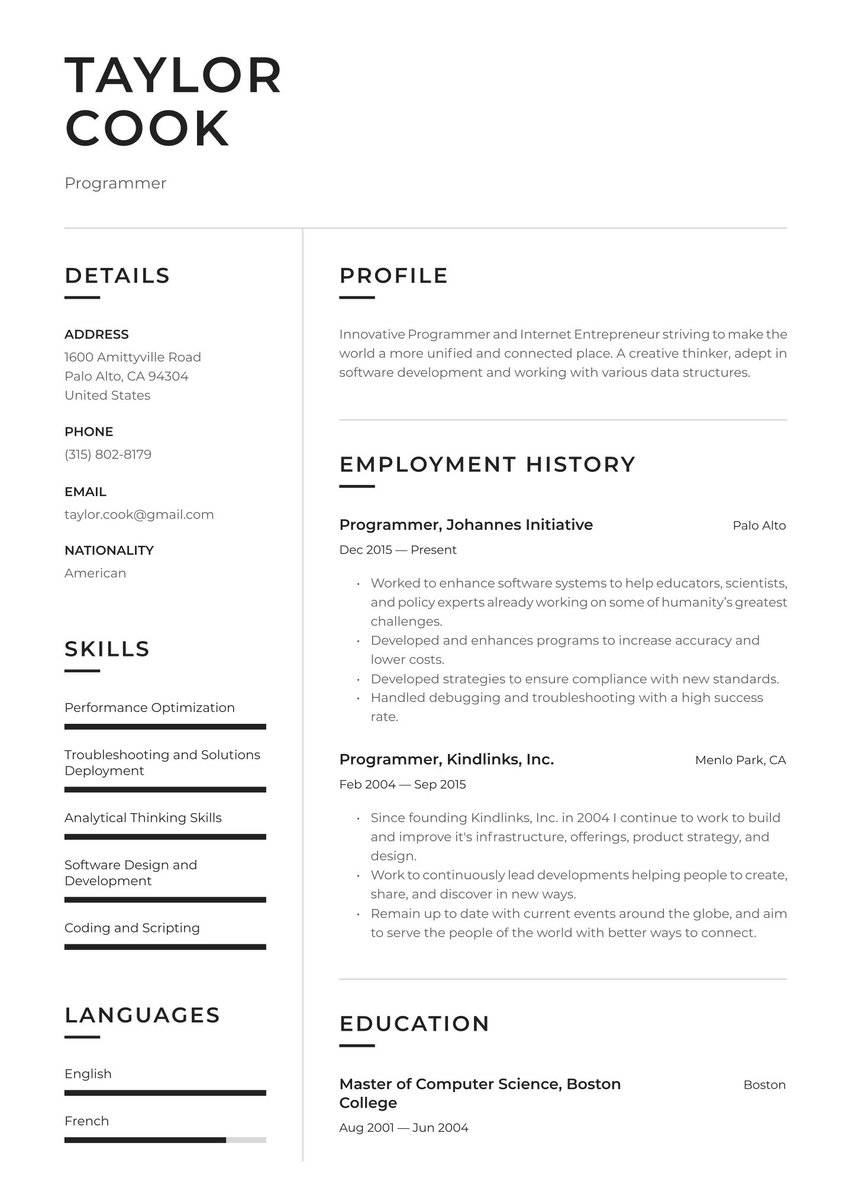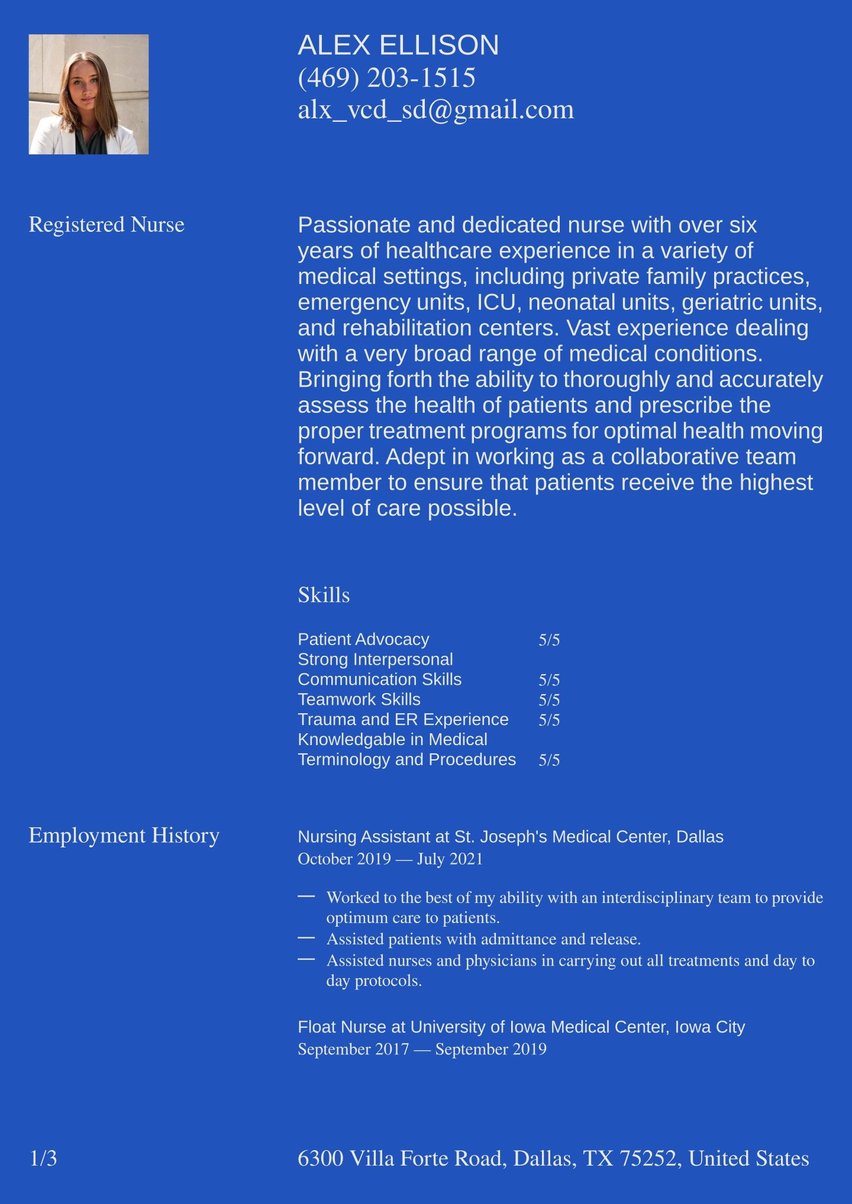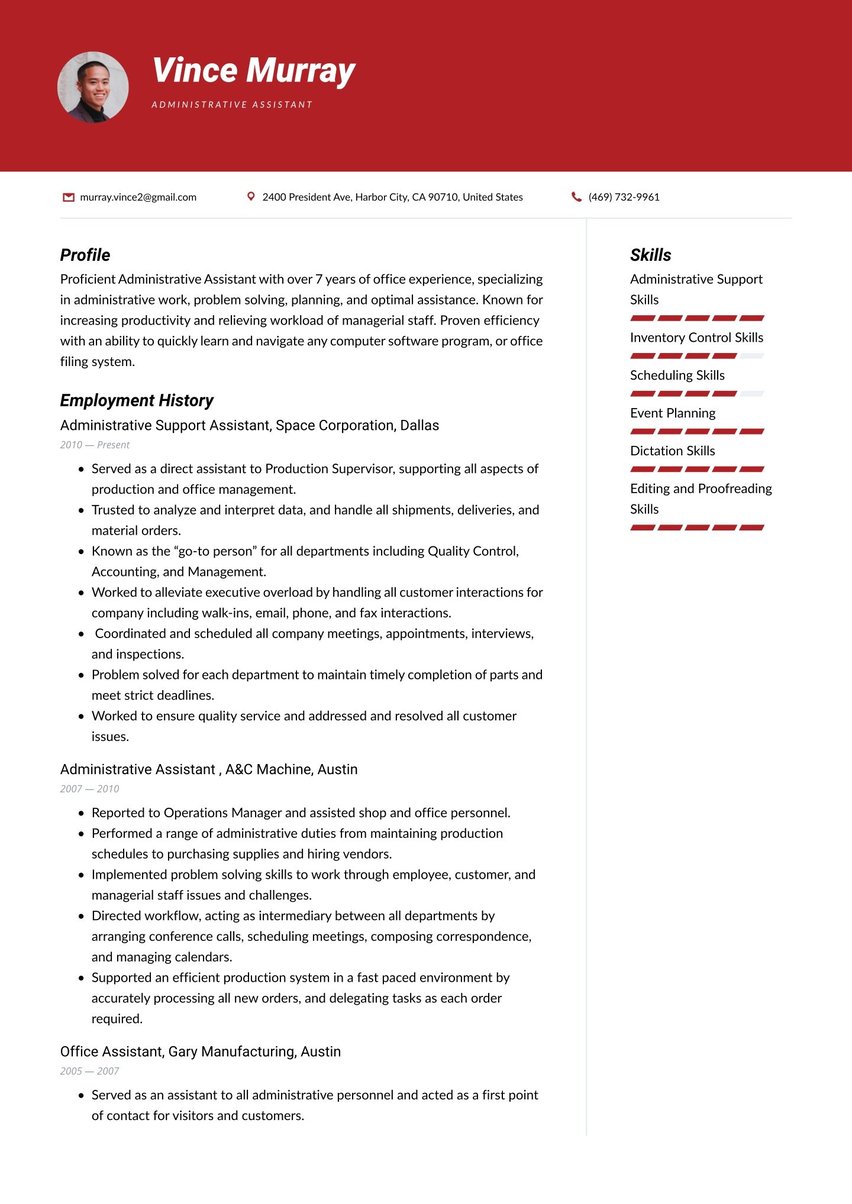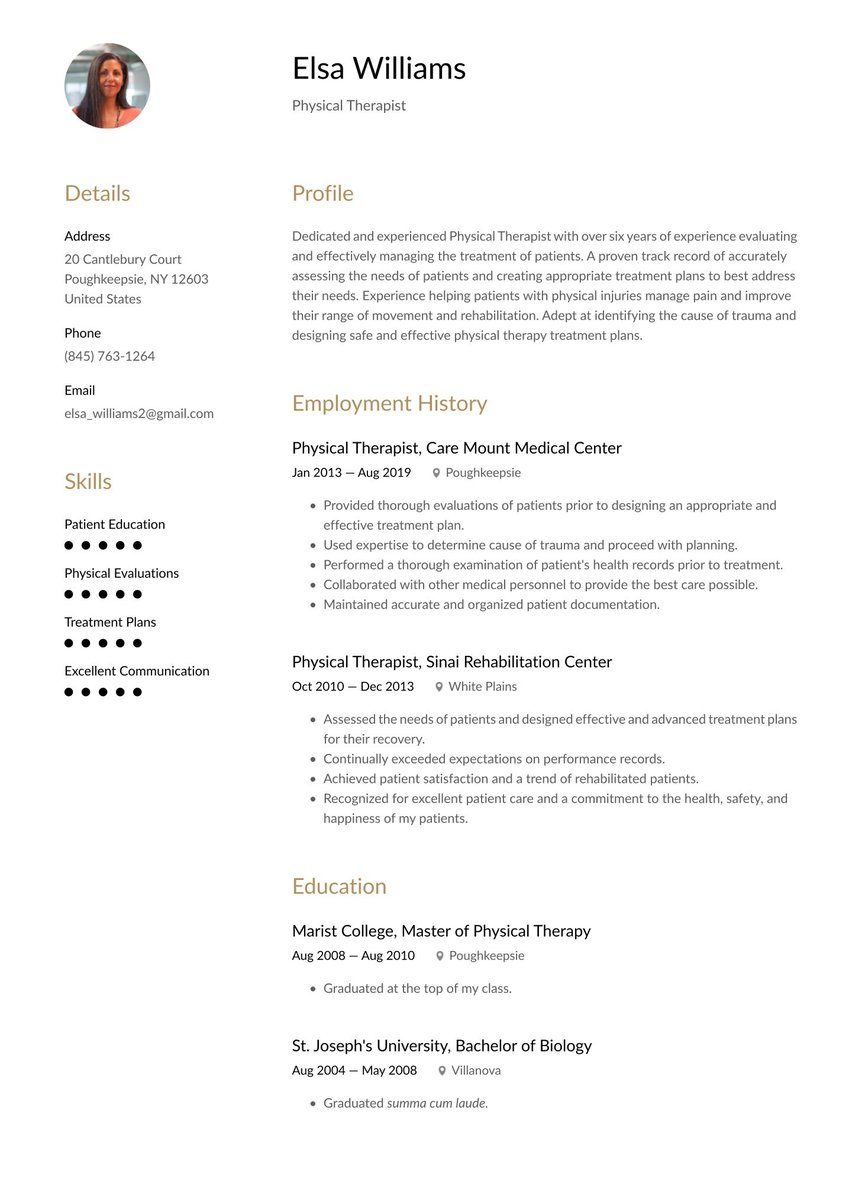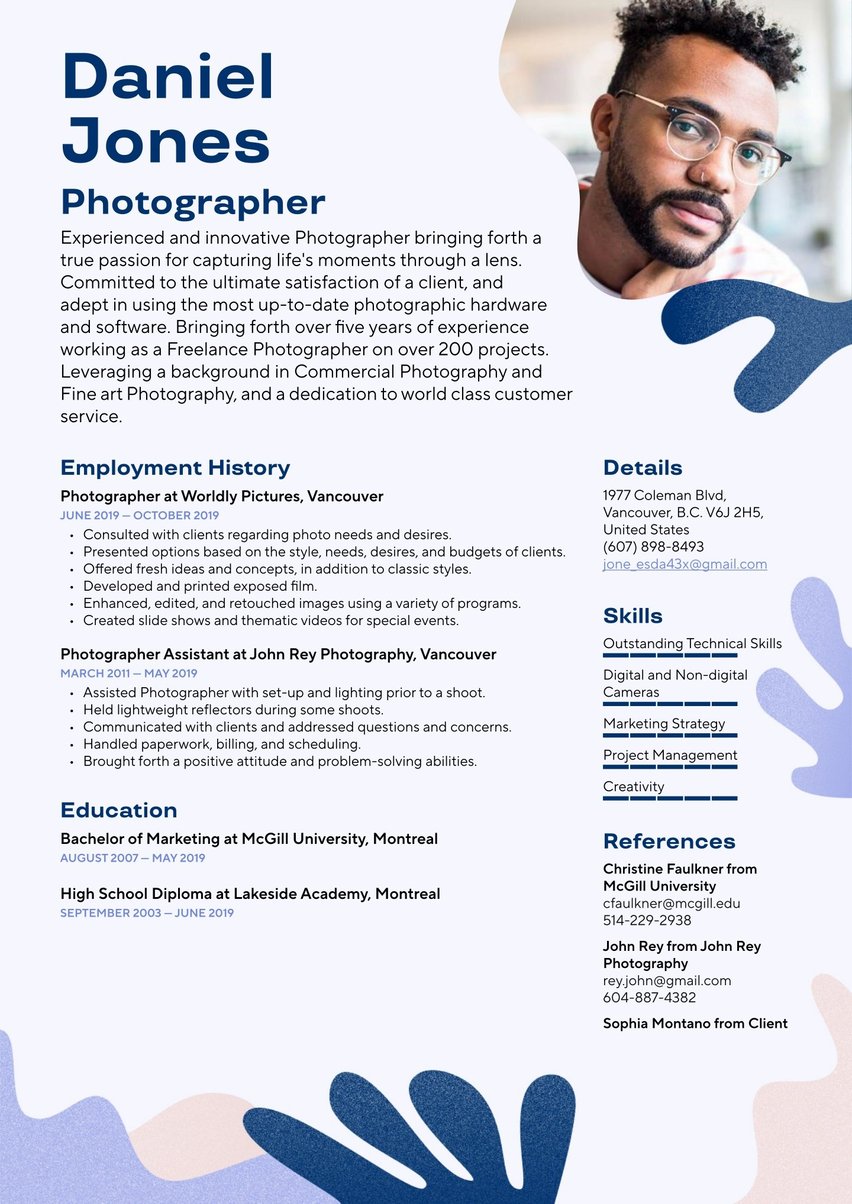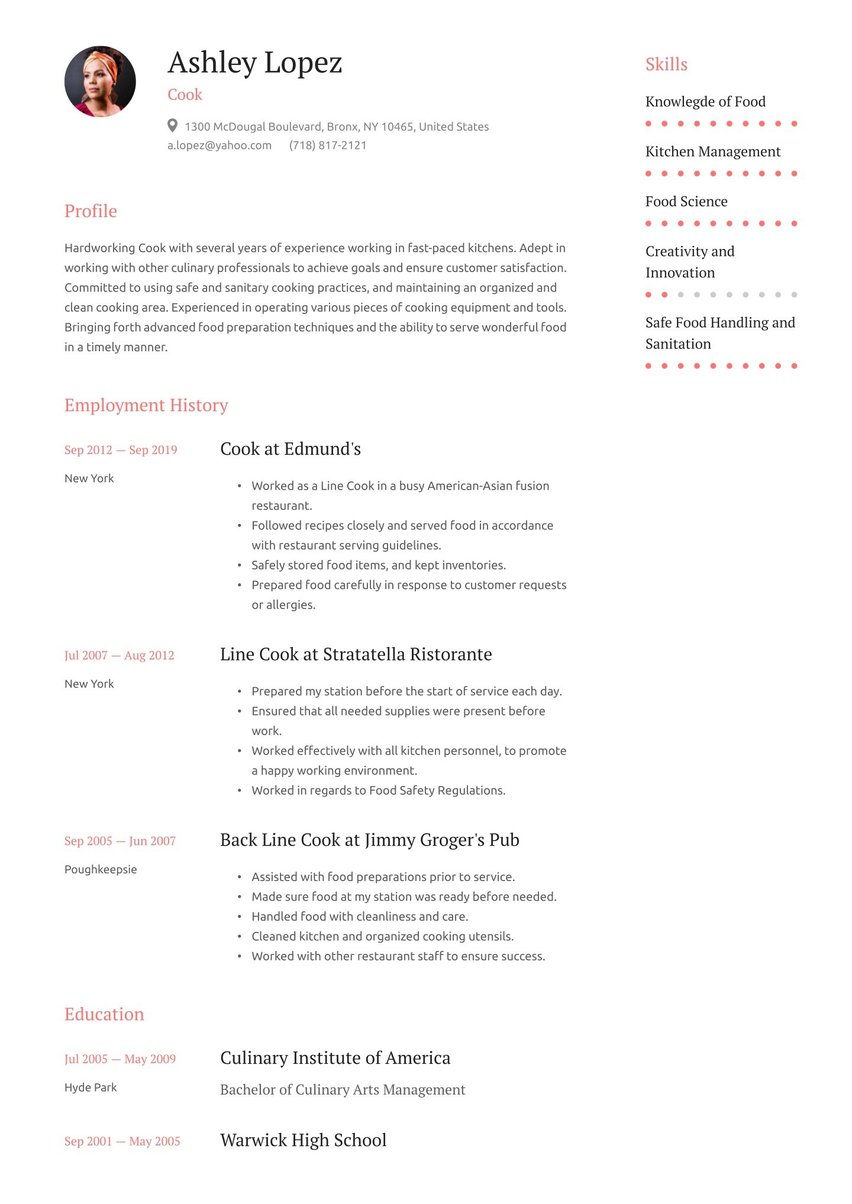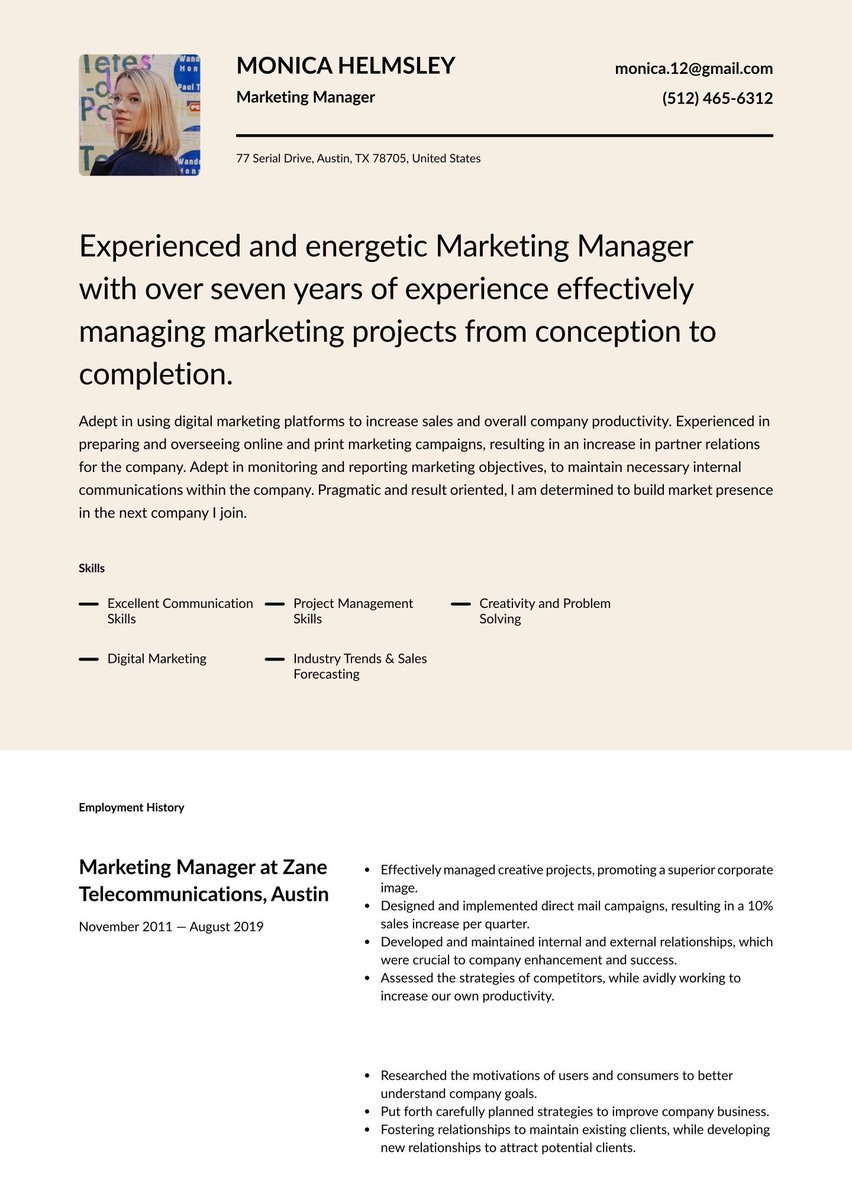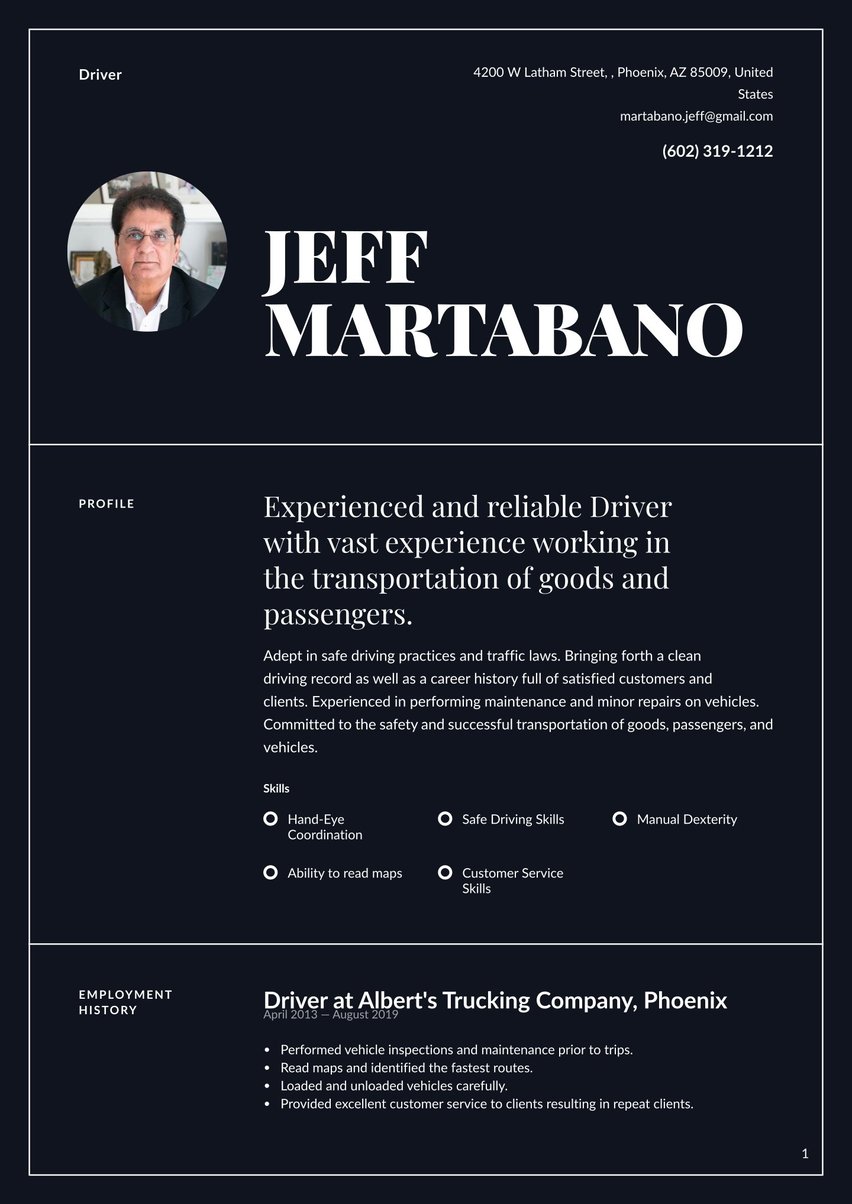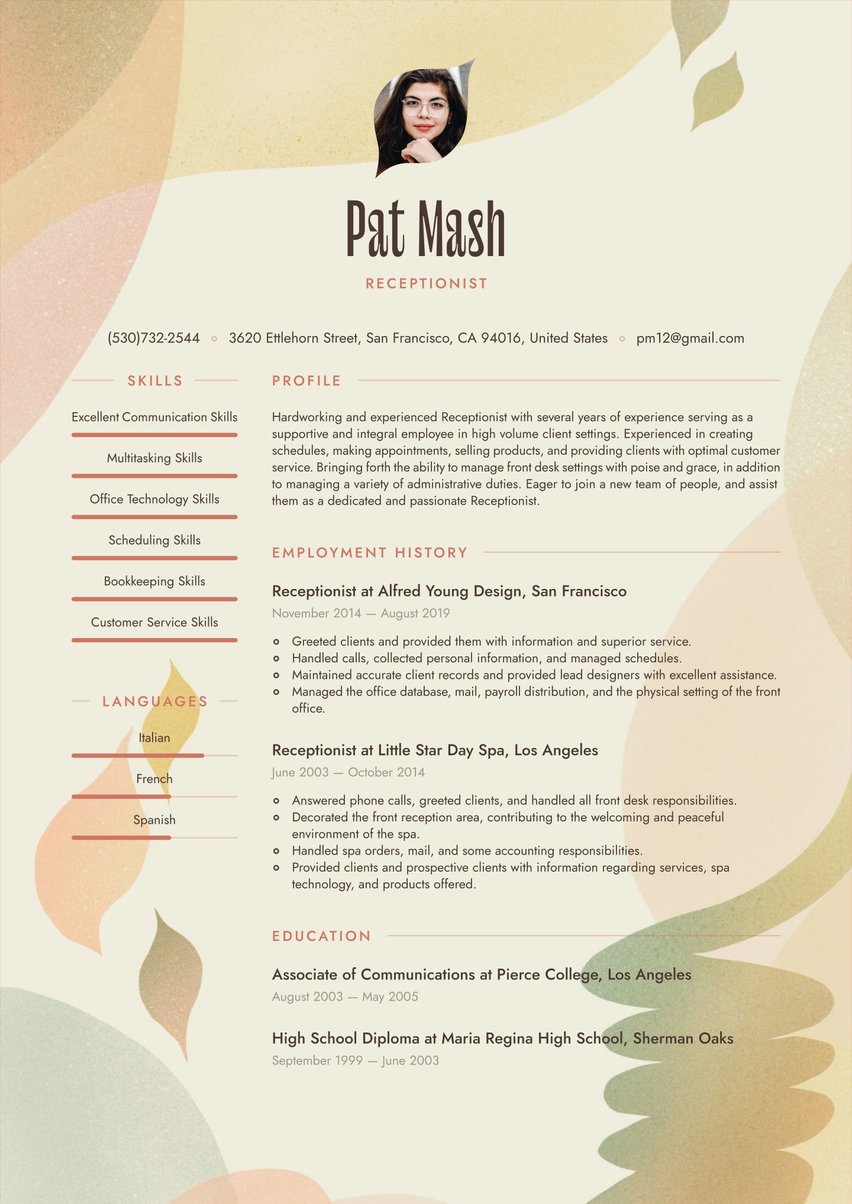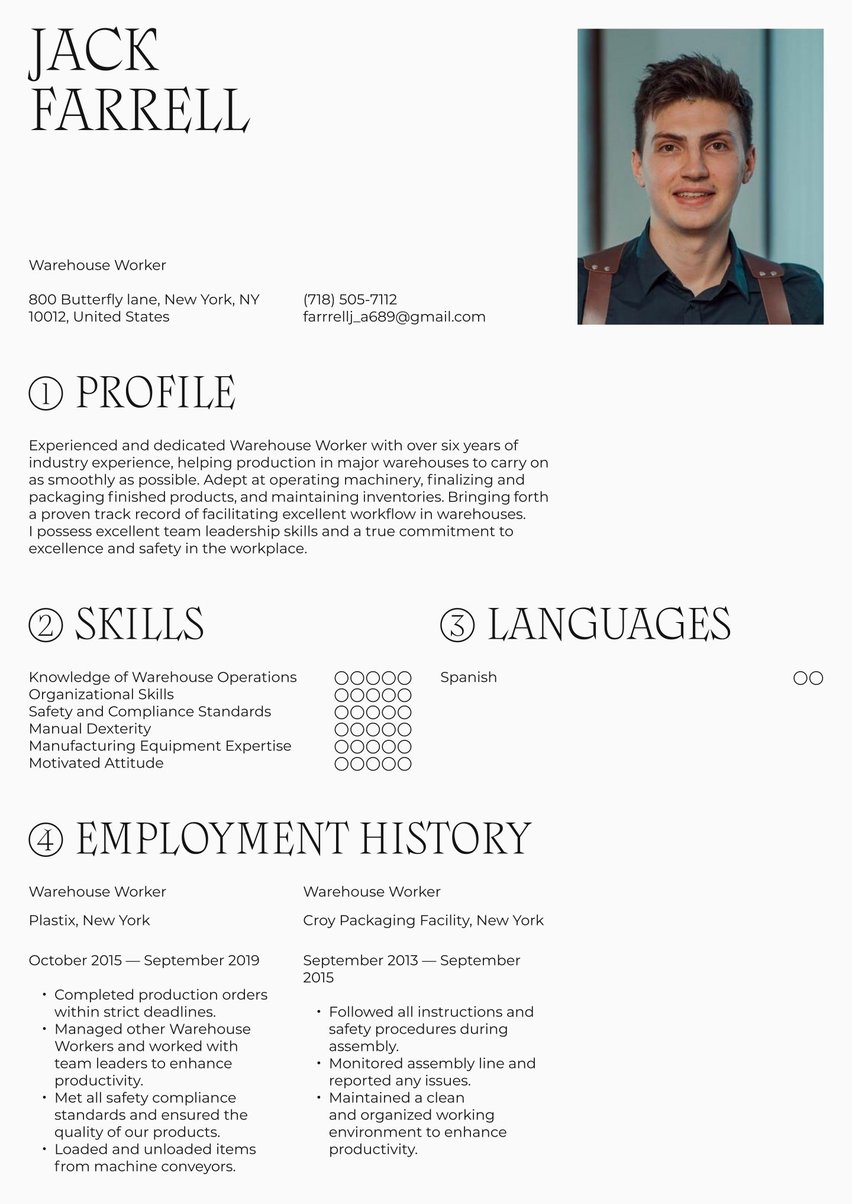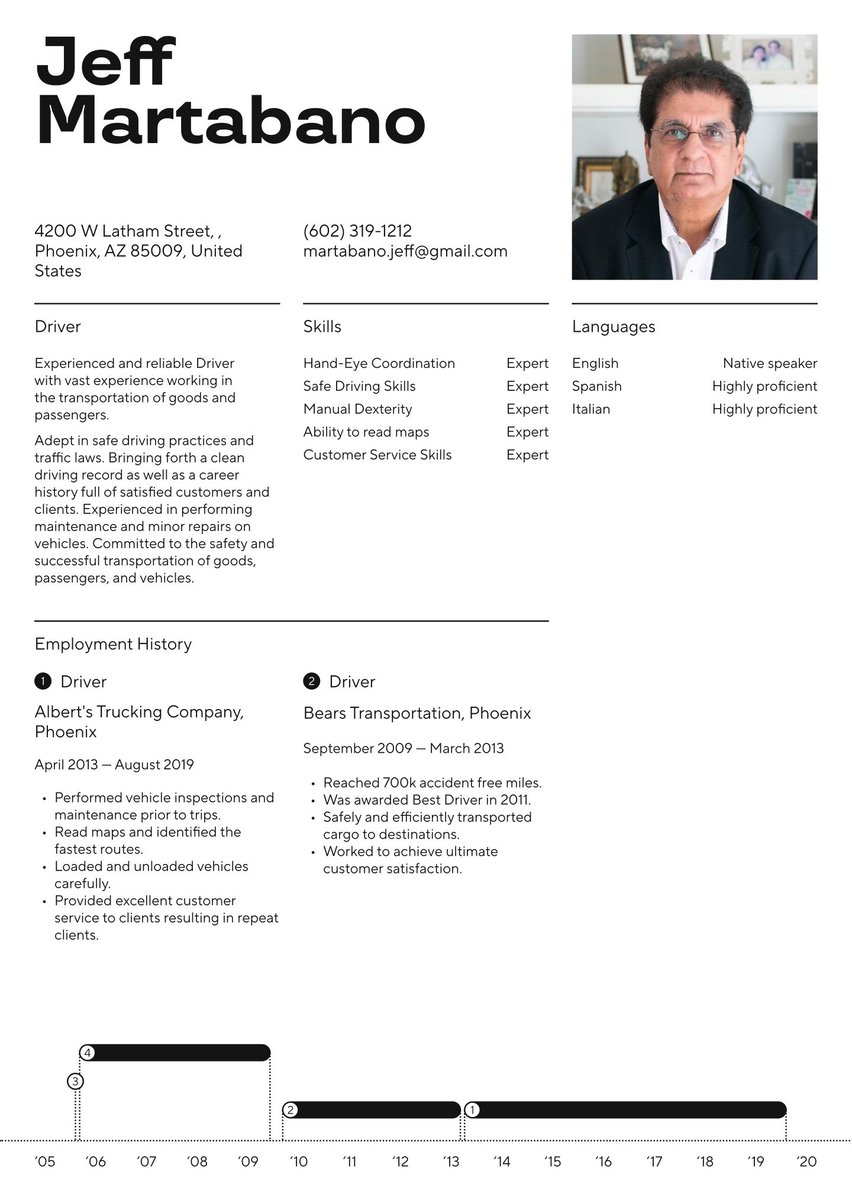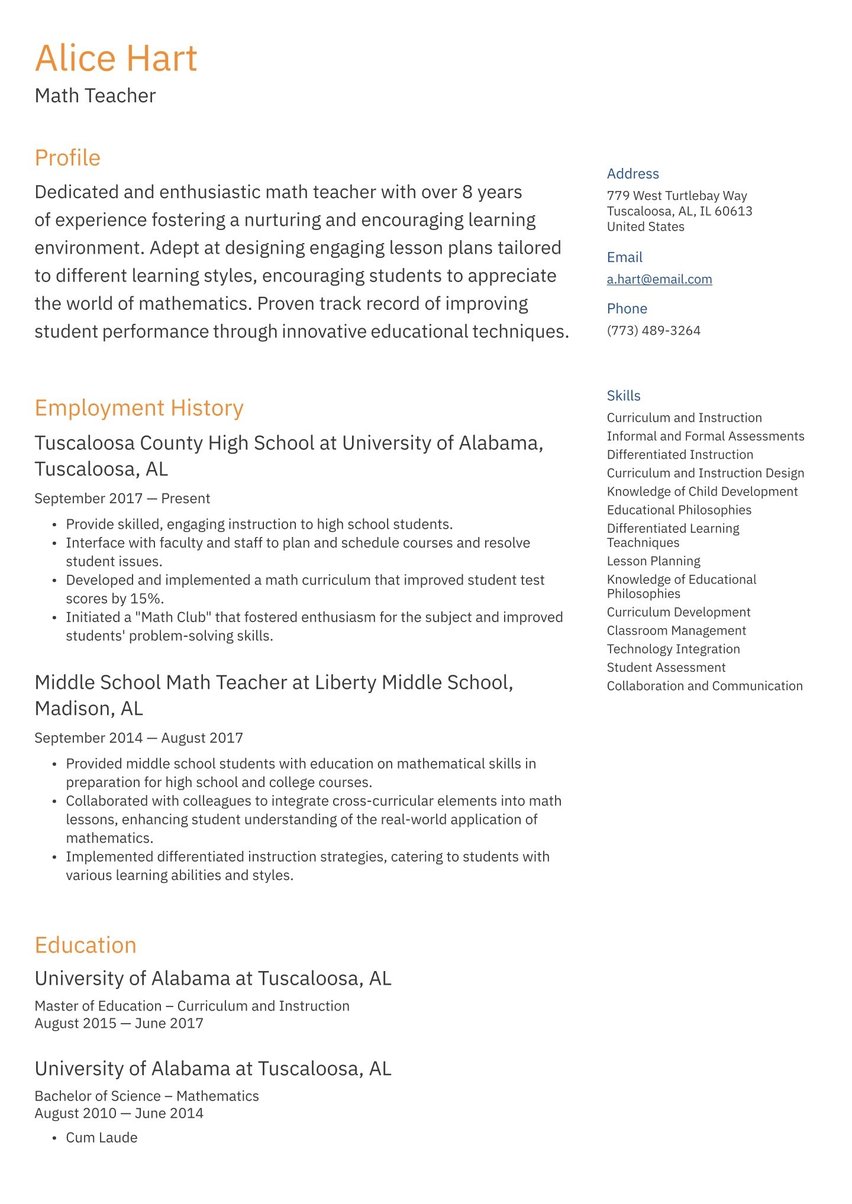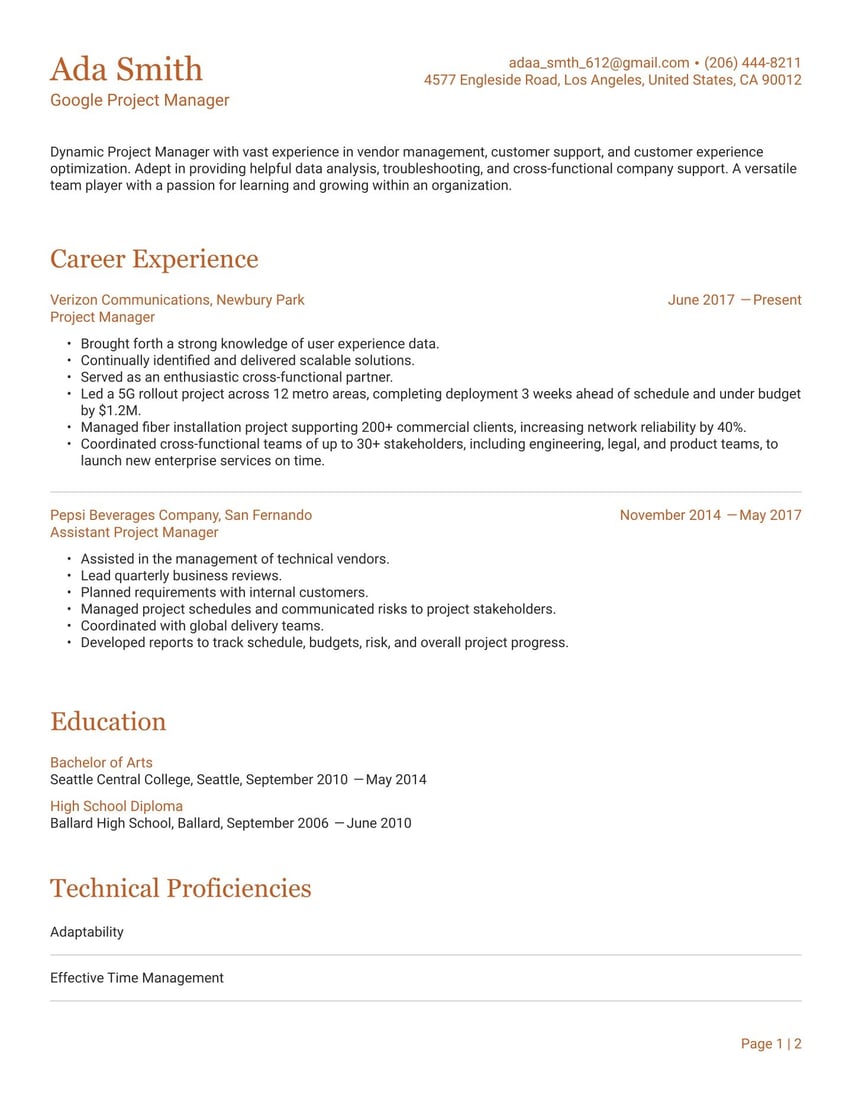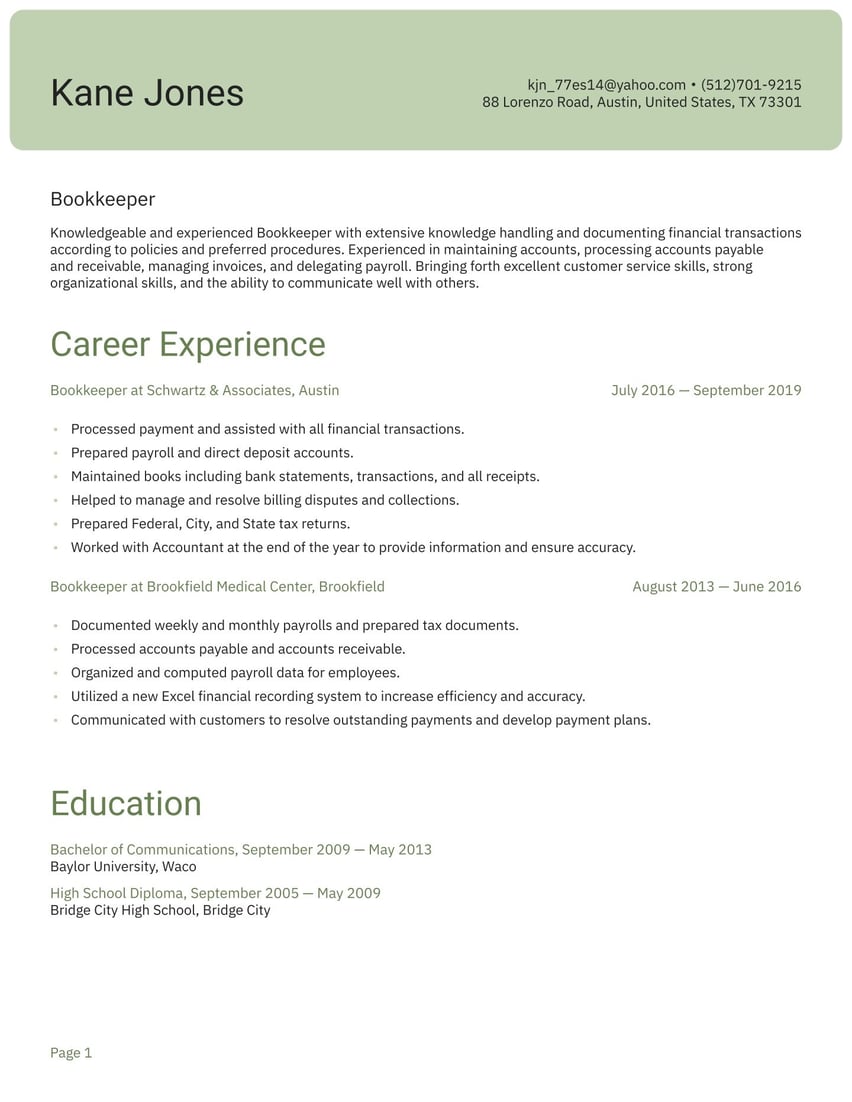05/2013 - 09/2019, Stage Manager, Round Circle Theater, Chicago
- Supervised, supported, and created plans for stage crews and performers.
- Ensured that the director's and designer's visions were carried out through production.
- Worked to ensure the proper delivery of lines, and the proper scenery changes during the play.
- Arranged for advertising for upcoming productions.
05/2008 - 04/2013, Stage Manager, Atrium Theater, Chicago
- Organized, scheduled, and managed rehearsals for a series of productions over the course of five years.
- Collaborated with other production crew on set designs, props, and costume designs.
- Developed and fostered positive relationships with crew members, performers, and theater personnel.
- Leveraged my organizational skills and superior attention to detail to ensure that rehearsals and productions ran smoothly.
08/2005 - 05/2009, Bachelor of Theatre, Northwestern University, Evanaston
09/2001 - 05/2005, High School Diploma, North Chicago High School, Chicago
- Superior Management Skills
- Excellent Communication Skills
- Time Management Skills
- Visual Design Skills
- History of Theater
An interview-winning stage manager resume takes all the pieces of your career and creates a whole greater than the parts, just as you do in your work. A director looking for a stage manager wants to know that the production is in the hands of a person who can see the big picture, but also attend to all the details that make a show run smoothly.
Stage Manager resume examples by experience level
You know you have the talent, but how do you create a presentation that will have the hiring manager eager to meet with you? Leave it in the hands of the experts.
Resume.io offers writing guides and resume examples for 300+ professions and an easy-to-use resume builder that will take the hassle out of your job hunt. Let us help you express your style and experience in a way that will impress employers and patients alike.
This resume guide, along with the corresponding resume example will cover the following topics:
- What does a stage manager do?
- How to write a stage manager resume (tips and tricks)
- The best format for a stage manager resume
- Advice on each section of your resume (summary, work history, education, skills)
- Professional resume layout and design hints.
What does a stage manager do?
Stage managers oversee all of the behind the scenes operations for stage performances. Stage managers have a variety of duties that change with each performance. They work with the director to accomplish performance goals and assist with a multitude of tasks.
Here are a few specific duties of the stage manager, according to the American Association of Community Theatre:
- Schedule and run rehearsals
- Communicate with designers and craftspeople about the director’s wishes and any changes made during rehearsals
- Coordinate the stage crew
- Call cues
- Oversee each performance
- Mark the stage dimensions
- Ensure props and the set are ready for actors
- Attend rehearsals
Overall, stage managers often offer a practical hand and serve as a source of organization and support for performances.
How to write a stage manager resume
Before you begin to compile your stage manager resume, you need to know the big picture. All resumes contain common elements. Create the following components for your CV:
- The resume header
- The resume summary (aka profile or personal statement)
- The employment history section
- The resume skills section
- The education section
The best resumes echo the tone of the targeted employer. A Broadway musical may require a different style than a community theater production or a traveling show. Theater is a small community. Maybe you know someone on the production. Find out what you can about the director’s working methods and the show itself and adjust your stage manager resume to fit.
Overcome the Applicant Tracking System
If you are applying for a position online, your stage manager resume will likely encounter an Applicant Tracking System. These are software programs that scan, sort and assess resumes. The ATS is looking for keywords and phrases the employer has pegged to the job.
The best way to ensure that your resume won’t get filtered out is to understand what your prospective employer wants. Analyze the job listing, carefully highlighting keywords and phrases within it that you can then use in your resume.
Use the phrase as it appears exactly. Spell out and use any acronyms just in case.
Choosing the best resume format for a stage manager
Your career as a stage manager may not have followed a linear path, but that’s just fine. Maybe you didn’t start out as a stage manager, but worked your way up through the lighting crew. You can still use our recommended reverse chronological order resume format to detail your successes.
This format is also favored by the ATS, so if you are applying online you will have less reorganizing to do once your resume has been scanned. Unless you have a compelling reason, you should organize your resume this way because both recruiters and the ATS prefer it.
If you have changed careers, are just starting out or are a seasoned professional, you may consider the other resume formats we suggest as chronological alternatives or hybrids. The functional resume style is typically reserved for niche technologists or scientists because it highlights skills over work experience. You may consider it if you have highly technical theater skills.
Community Theatres lists 12 different types of theater. Your resume should reflect the differences. A Broadway or even off-Broadway production will require different skills from a dinner theater show.
Resume summary example: set the scene
Your stage manager resume summary, also called a profile, is the section to let your creativity show. This may not be the first place a hiring manager looks, but if they like your experience, they will definitely head here to see how you will fit in with the production.
How do you describe yourself, your work style and your biggest career success? This is the place to do that. A great summary uses strong, positive language to spotlight your talent. Keep the question “Why are you the right stage manager for this production?” in your mind as you develop your profile.
This freeform section of your resume may be the most difficult to compile. If you need more inspiration, check out our other theater related resume samples. We offer a general theatre resume example as well as more specific guides. We have an actor resume example and a costume designer resume example, if you have experience in either. Have you worked on films? The cinematographer resume example or the film producer resume example may help you out.
You can find a stage manager resume example summary below.
Passionate and experienced stage manager with several years of experience in stage management and community theater work. Bringing forth a lifelong passion for aiding in the success of theatrical productions by serving as a knowledgeable and effective Stage Manager. Dedicated to building and fostering positive relationships with stage crew, actors, and theater goers.
Employment history sample: your career in the limelight
You understand story structure. Re-create that structure in your stage manager resume as you tell the tale of your career achievements in the employment history section. The best resumes detail not the responsibilities you’ve had at each job, but rather the problems you solved and the results you achieved.
Be proud of how you came up the ranks and the variety of talent you have used to become a stage manager. Use each bullet item to demonstrate the attributes you need to be successful in your targeted production. If you handled a particularly tricky rehearsal schedule or worked in a theater with difficult challenges, detail them here.
Use detail and data within each item to strengthen your candidacy.
You can find a stage manager employment history resume sample below.
- Supervised, supported, and created plans for stage crews and performers.
- Ensured that the director’s and designer’s visions were carried out through production.
- Organized, scheduled, and managed rehearsals for a series of productions.
- Developed and fostered positive relationships with crew members, performers, and theater personnel.
- Worked to ensure the proper delivery of lines, and the proper scenery changes during the play.
- Arranged for advertising for upcoming productions.
CV skills example: showstopper
As a stage manager, you must have a great range of skills. This is the place to show those off on your CV. Your goal is to get the director to think, “Wow! This person has everything I need to keep my show running smoothly.”
The skills section of your stage manager CV is often the first place a hiring manager will look. If your talents are not what they need, they will move on without checking out the rest of your application; therefore, you need to make sure you are taking the time to personalize for each different production.
Develop a running list of all your skills and attributes. Add to it as you grow in your career. When it’s time to curate your skills section, choose a combination of your highest level soft skills and hard skills to show you are a well-rounded candidate. Remember to review the job listing and account for the ATS.
You can find a skills section resume sample below.
- Project Management Skills
- Effective Communication Skills
- Multitasking Skills
- Leadership Skills
- Problem Solving Skills
Stage manager resume education example
You may have a formal theater or performing arts education or you may have learned on the job. In either case, this section is a listing of your academic achievements. If you have taken acting or other classes that have advanced your knowledge of the theater, list those in your education section as well.
See resume example for an education section below.
- 2005-2009 Northwestern University, Bachelor of Theatre Evanston, IL
- 2001-2005 St. Mary’s Academy, High School Diploma Chicago, IL
Resume layout and design: set piece
Whether the set is elaborate or minimalist, the look was a conscious decision made to create a mood and impression. The layout and design of your stage manager resume should be just as deliberate. What impression do you want to make? Organized and creative? Professional and detail-oriented? Consider these options as you develop your design.
Remember that your main goal is readability, so even if you decide to get creative, you need to leave ample white space and distinguish your contact information and section headers to make it easy for hiring managers to find the information they seek. A professionally-designed resume template can make this quick and easy.
Key takeaways for a stage manager resume
- Adjust the tone and style of your resume to fit the type of theater to which you are applying.
- Directors will be looking for a complementary style to their own so find out as much as you can about the personalities involved in the show.
- Write your employment history as though you were outlining the plot of a play.
- Check out our stage manager resume sample for more ideas on creating a great layout and design.


.jpg)

-resume-example.jpg)



















